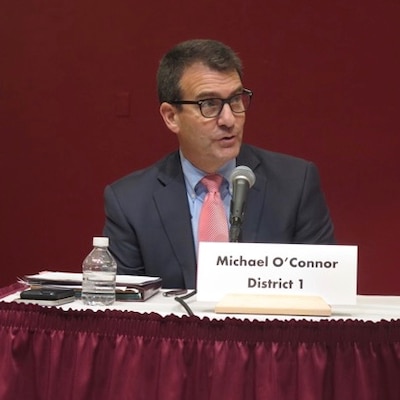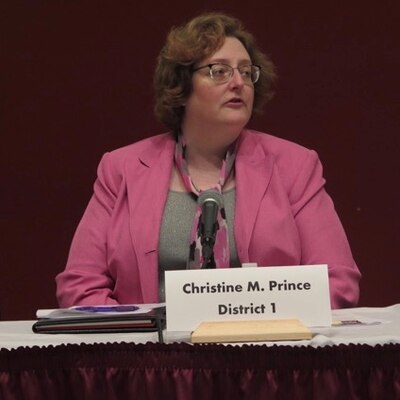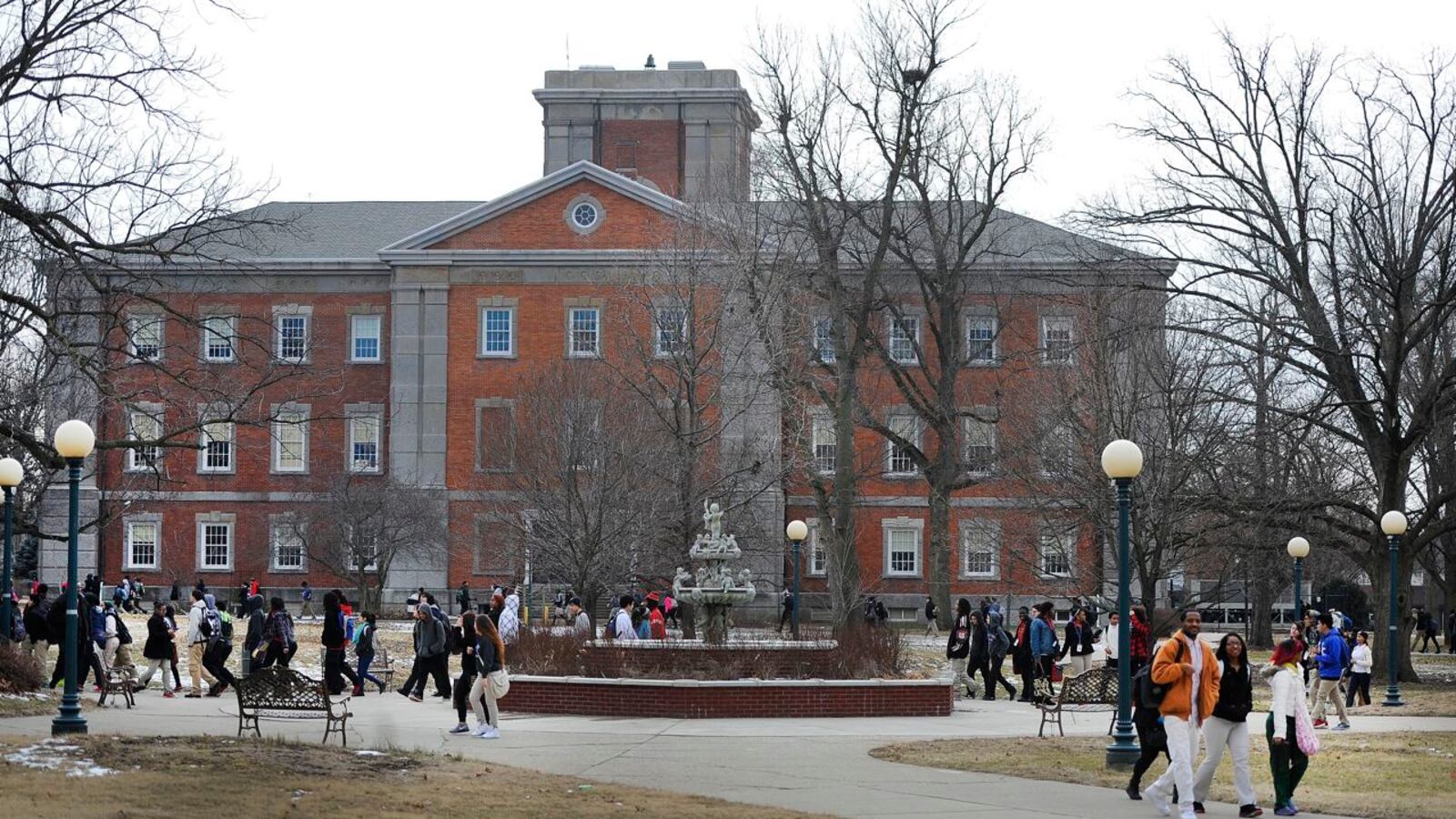This is the first in a series of stories profiling the 10 candidates for Indianapolis Public Schools Board, and their positions on some of the most substantive issues facing the district. In the coming weeks Chalkbeat will profile the candidates for each of the seats up for election. We begin with District One, where Michael O’Connor and Christine Prince are facing off for a seat representing the east and southeast side of the district, which includes Arsenal Technical High School.
For more coverage of the campaign for school board and the state political candidates check out the Chalkbeat election series.
Eastside voters will choose from two names that may be unfamiliar when they vote for Indianapolis Public Schools Board this November. But one candidate is a political insider with experience in city government, while the other is a newcomer to politics.

Michael O’Connor is an incumbent board member, but this will still be his first time running for a seat because he landed his spot when he was chosen by the current board last year. He filled the vacant seat left by Caitlin Hannon when she resigned to launch a unified enrollment system for Indianapolis students. Currently a lobbyist for Eli Lilly and Company, O’Connor previously served as Indianapolis deputy mayor under Mayor Bart Peterson.
Born in Greenfield, O’Connor has lived in Irvington for 25 years. He has two daughters who attend Catholic school.
Through his work as deputy mayor and with local charities, including the United Way of Central Indiana and the Shepherd Community Center, O’Connor said he has spent years working on education issues in Indianapolis.
“The biggest challenge is the impact of poverty in our neighborhoods,” he said, “We as a school system (must) respond to that poverty by creating opportunities not just for students to be well educated but for their families to be engaged in that education.”
O’Connor’s approach to change is practical, and he is focused on the issues that the IPS board controls rather than the hot button education issues that consume the state — such as how schools are graded by the state or whether families should get vouchers to help pay private school tuition.
“I’m in the reality business,” he said.

Christine Prince is a registered nurse making her first bid for office. A newcomer to politics, Prince said she was inspired to run for school board because she has seen the impact that poverty has on people’s health in the long term, and education is essential to improving children’s career opportunities.
“I was fortunate to come from a family where we were able to go to college, and I’ve had great career mobility from that,” she said. “If we don’t have good public schools here, we are not going to set the foundation for these students to be nurses or doctors or whatever job they want.”
A Virginia native, Prince has lived in Indianapolis for more than two decades. She moved to the IPS district from Wayne Township in August 2015. She is a volunteer with the adult literacy program IndyReads, a member of Indiana Moral Mondays, a coalition advocating for progressive causes, and she has experience teaching nursing.
Prince, who does not have children, said that she has watched the district from the outside for years and has concerns about recent changes such as innovation schools.
“The biggest issue is a lack of community engagement in making decisions or relaying those decisions,” she said. “There’s a lot of change happening very quickly.”
O’Connor and Prince disagree on many of the most pressing decisions the school board could facing in the coming term.
On innovation schools:
O’Connor said he supports innovation schools, which are public schools with charter-like flexibility, as a way to prevent the state from taking over failing schools and as a tool for improving struggling schools.
“We have to change things,” O’Connor said. “We have to develop a system that gives families a high-quality option but also really looks to address the challenges those families are facing.”
Prince said the district should not have innovation schools because she is concerned that their methods are untested, and she does not support working with for-profit managers.
“I believe there are strong schools within IPS, and we could duplicate those,” she said. “I don’t want unproven strategies.”
On Superintendent Ferebee:
O’Connor said the administration has some weaknesses, particularly in its communication, but he is strongly supportive of the work that Ferebee has done cutting the number of failing schools in the district.
“Change is hard. Change makes people upset sometimes,” he said. “Yet, if you look at the educational results, … we are making dramatic improvement.”
Prince raised several concerns about Ferebee’s performance, including his administration’s failure to immediately report a counselor who was accused of abuse. She also said she believes the superintendent is working on behalf of for-profit companies and is too quick to implement unproven strategies.
“I think his loyalties are divided,” she said. “He needs to go.”
On closing schools with low enrollment:
The possible need to close schools is one area where O’Connor and Prince have similar views. O’Connor said that with such low enrollment in some schools, the district must find a way to use those buildings more effectively, either by finding partner organizations to share space or by closing schools.
“In the end, we might have to make some tough decisions about closing schools, and I am not going to predetermine yes or no,” he said. “I know today, we are spending too much on operation and maintenance of facilities that are underutilized.”
Prince said it doesn’t make sense to keep schools open if they are not full because of the costs of running the buildings.
“I would want to make sure that if we did combine schools that we are doing so paying attention to the culture of the schools and to the geographic location,” she said.
On supporting teachers:
Both O’Connor and Prince argue for paying teachers more and taking steps to empower teachers, although their visions diverge. O’Connor said that the district needs to pay teachers better to catch up with some of the suburban districts surrounding IPS. He also supports giving teachers more freedom to teach without interference.
“We need to empower the principals to make decisions at the school based level that allow them to empower their teachers to make decisions at the classroom level,” he said.
Prince said the district needs to pay teachers better, provide meaningful continuing education and recognize them as experts in their fields.
“I would like to see a task force that includes teachers,” she said, “where they have input into what they believe the problems are and what they believe the strategies are.”

